
Hong Kong leader Carrie Lam says she scored 96 per cent for policy address promises. Is she right?
- Chief executive is expected to seek a second term but has so far refused to confirm her candidacy
- In the midst of the waiting game, Lam decided to dedicate part of her policy address last Wednesday to defending her past achievements
The city’s next leader will be decided by secret ballots cast by 1,500 political elites who have historically voted in Beijing’s interests, a loyalty that was further cemented by the central government’s recent overhaul of the electoral system to ensure only “patriots” can govern. And while Lam has yet to receive the equivalent of the 1996 famous public “symbolic handshake” that then Chinese president Jiang Zemin gave to Tung Chee-hwa, who a year later became the city’s first post-handover leader, it is important to note that neither has anyone else.
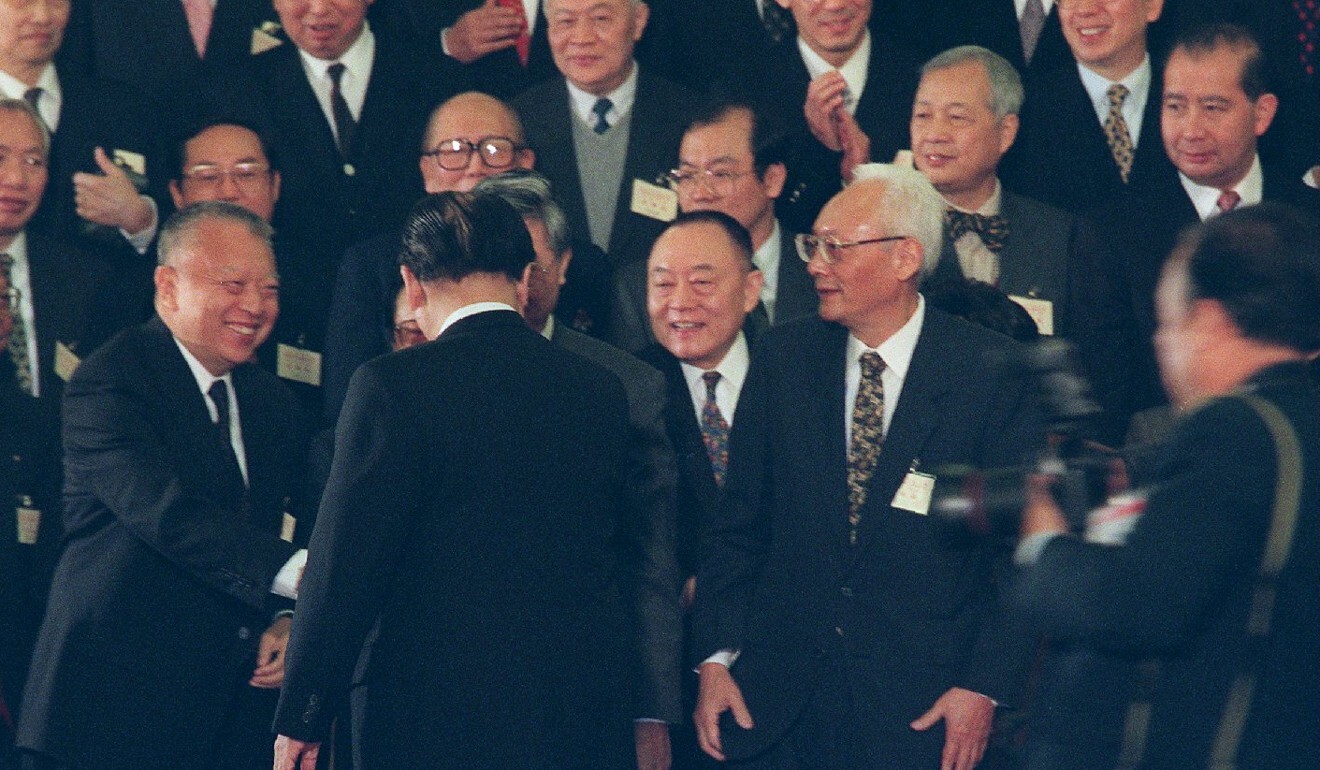
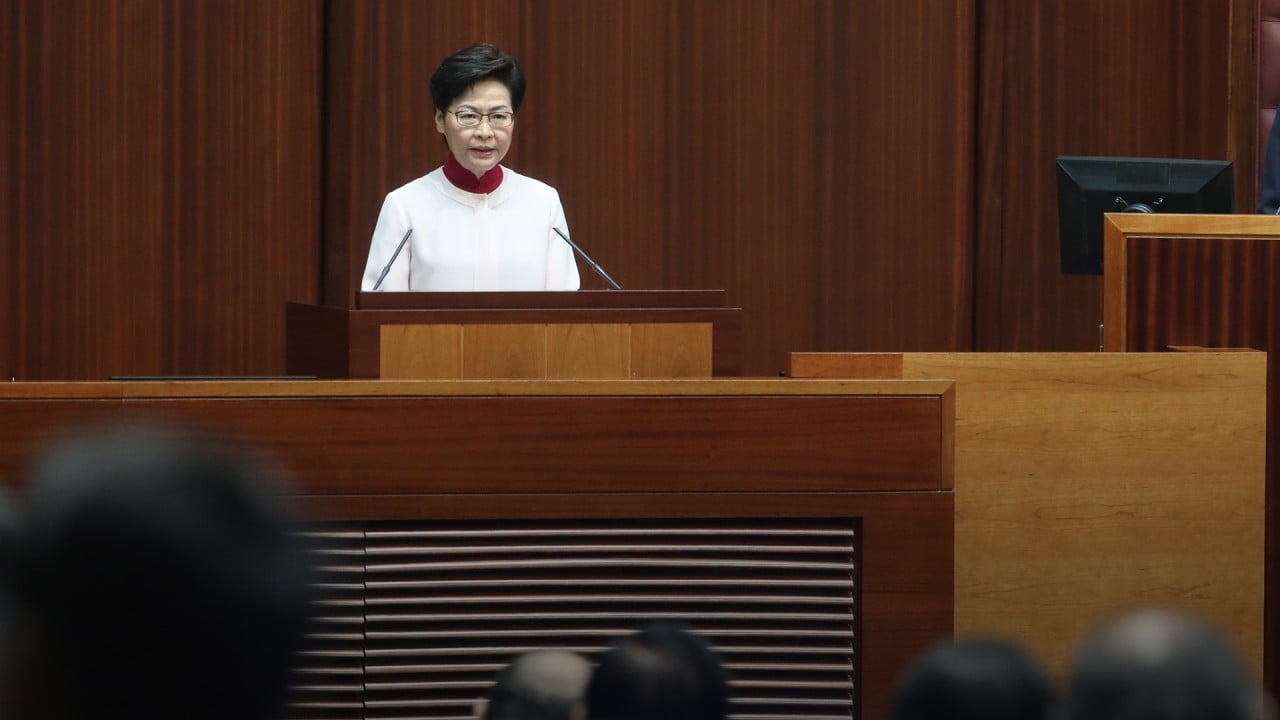
03:43
Hong Kong leader Carrie Lam gives last policy address of current term, ending on emotional note
“The metaphor I can think of is she is like the tiger mother of Hong Kong,” said Jean-Pierre Cabestan, a research professor of political science from Baptist University.
Beijing’s outreach drive means Carrie Lam’s to-do list just got longer
Policy shortcomings identified
On specific policies that Lam focused her own report card on, the Post, with the help of a range of experts, reviewed the status of hundreds of those proposals and identified five key areas where promises either failed to materialise or their progress was very far behind schedule.
Empty brownfield sites
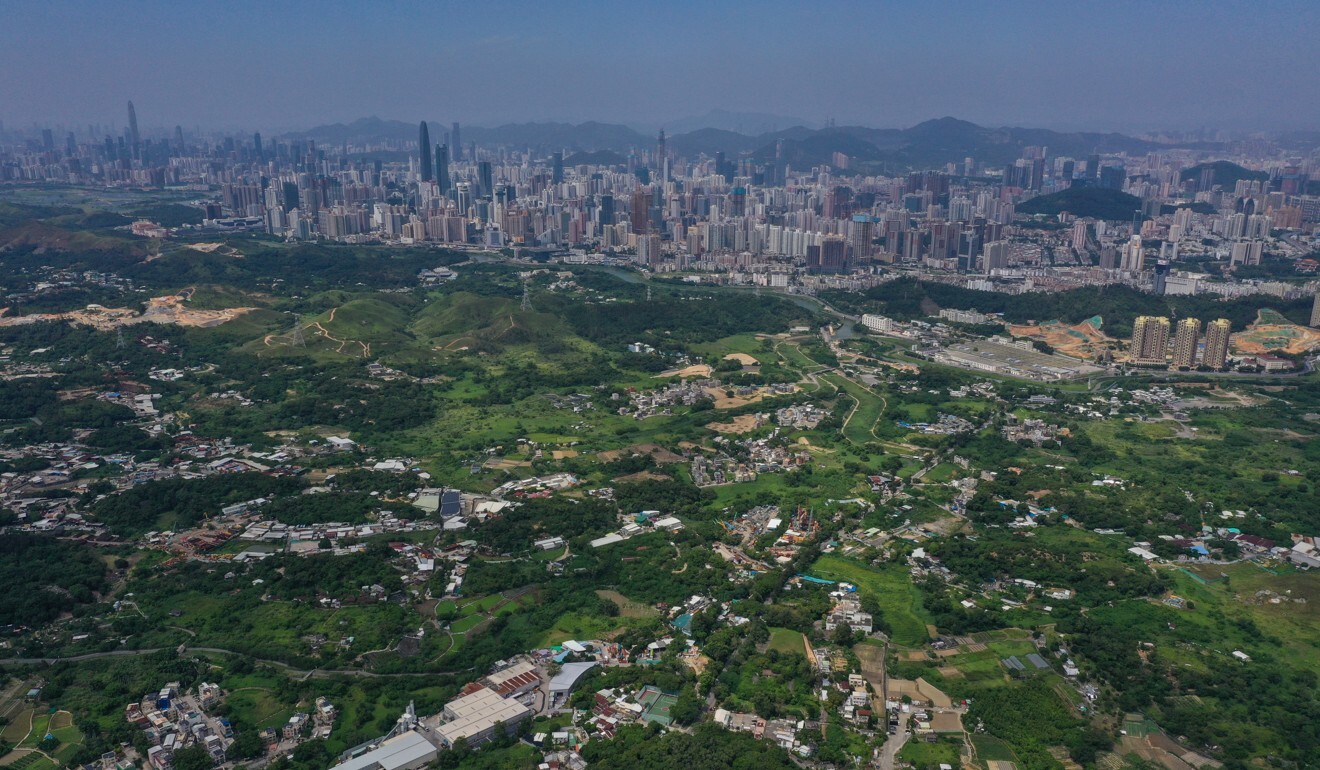
Touted as a silver bullet to slay the city’s seemingly immortal housing woes, that HK$624 billion (US$80 billion) scheme will set the record as Hong Kong’s costliest infrastructure project.
While lawmakers approved HK$550 million for an initial feasibility study, advocacy groups have remained cautious in their support. They have instead asked why more attention has not been paid to developing brownfield sites, plots dotted mostly around rural northern areas once tilled by farmers but which are now occupied by open storage yards and warehouses.
In a city where residents wait nearly six years on average for public housing, those sites offer a far easier solution to securing land to build homes than encroaching on ecologically sensitive areas, they have argued.
When will Hong Kong’s new land plans actually be completed?
When Lam delivered her maiden policy speech in 2017, she asked the government to examine how brownfield plots were being used. In last year’s address, she said a review of a number of the underutilised sites with potential for housing had been completed.
Yet on Wednesday, Lam addressed the progress only in passing, saying the sites were “covered by a number of development projects”, a claim Greenpeace East Asia campaigner Chan Hall-sion called “confusing”.

“Lam did not specify the planning purpose of these sites,” Chan said. “Research was completed a long time ago, and transport infrastructure is already there, but there have been no substantial policies until now. We don’t need a ‘New Territories Tomorrow Vision’, but a ‘Brownfield Today Vision’.”
Greenpeace said that according to its research based on data obtained through the government’s Code on Access to Information, about 160 hectares of brownfield areas could be developed, far more than the 47 hectares scattered across 12 sites previously flagged up by the Planning Department.
Still stuck in traffic
In a city bisected by a stunning harbour, ensuring a steady flow of commuters has always floated to the top of an administration’s list of priorities. In 2018, Lam pointed to the long-standing traffic congestion at the three harbour crossings, pledging in her policy address to “rationalise” the tolls to redistribute the rush hour backlog of cars, trucks and buses.
The following year, she proposed raising the fees for cars at the Cross-Harbour Tunnel and Eastern Harbour Tunnel from HK$20 and HK$25 to HK$40, and lowering the Western Harbour Tunnel toll from HK$70 to HK$50. But the plan was later withdrawn due to a lack of support from the Legislative Council.
Tunnel tolls plan stalls as government makes face-saving U-turn
No progress on this initiative was reported on Wednesday. Three days after her speech, Lam said some policy deadlocks persisted despite her best efforts.
“I had already shown up at the negotiations with the Western Harbour Tunnel Company in return for a proposal. It was later opposed by lawmakers who refused to accept that the Cross-Harbour Tunnel toll had to be raised,” she told a radio programme on Saturday. “Let’s hold on till their franchises expire. Every failure has a reason.”
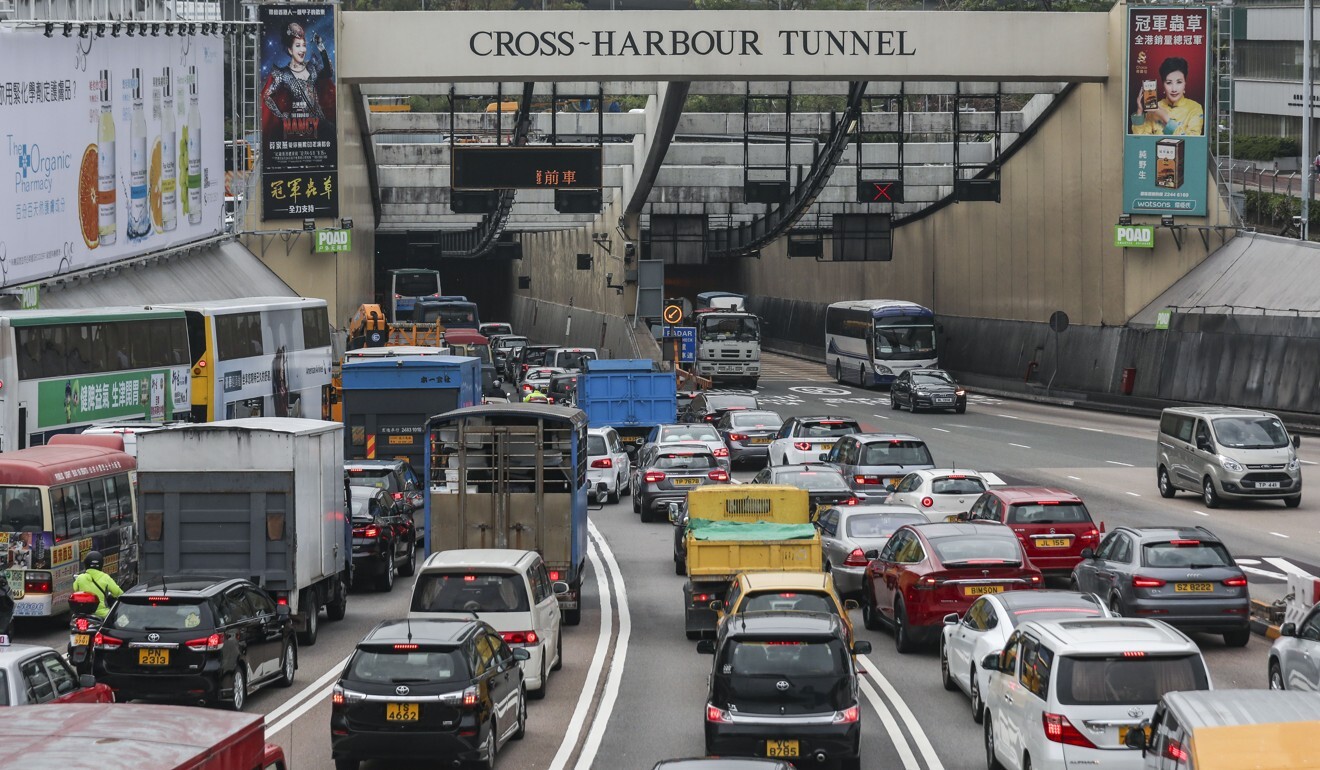
But pro-establishment lawmaker Ben Chan Han-pan, deputy chairman of Legco’s panel on transport, said the government should not waste any more time and start studying other options.
Chan, a member of the Democratic Alliance for the Betterment and Progress of Hong Kong, suggested that tolls adjusted according to time – setting a higher amount at peak hours and lower during quieter periods – should be introduced when the franchise expired in 2023.
“The failure of the government’s proposal was due to its insistence on charging a fixed-toll fee,” he said. “There should be some flexibility in exploring a way out.”
Tougher anti-bribery laws stall
During her election campaign and in her first policy address in 2017, Lam proposed expanding anti-corruption laws to cover the city’s leader and resolve the “constitutional and legal issues” contained in suggested amendments to the Prevention of Bribery Ordinance.
This involved extending sections 3 and 8 of the law, which ban government officials from “soliciting or accepting an advantage” and outlaw “bribery of public servants by persons having dealings with public bodies,” to cover the chief executive. Calls to plug the loophole arose in 2012 when former city leader Donald Tsang Yam-kuen was accused of accepting bribes from a businessman.
Tsang was charged with accepting an unlawful advantage over a special rental deal for a Shenzhen penthouse which the prosecution alleged came in exchange for approval of a digital broadcasting license. He was acquitted.
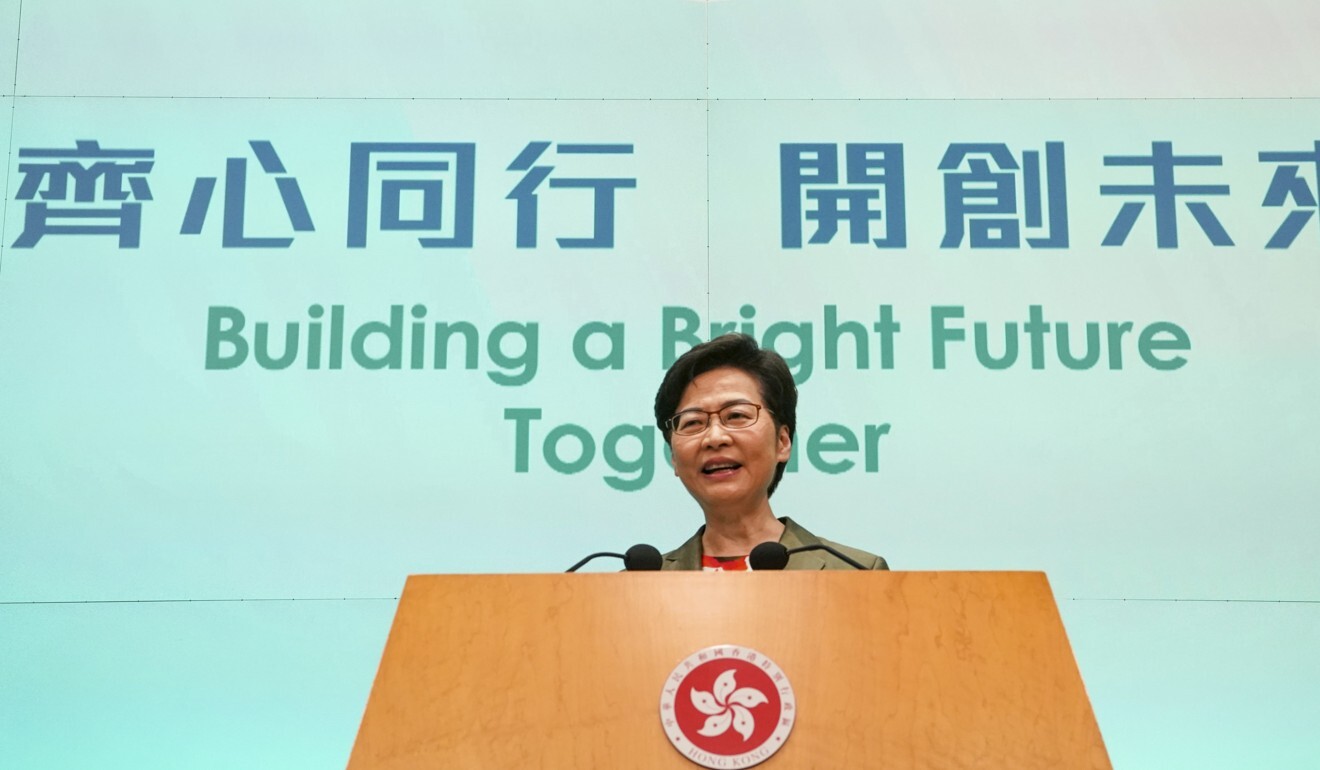
The Post previously reported that Beijing was against widening the scope of the bribery law, and Lam in December last year made it clear that she had to break her campaign promise, saying that amending the law would affect the chief executive’s constitutional position.
At that time, she called for “brighter ideas” to address the problem, but the topic was not touched upon last Wednesday.
Former anti-corruption investigator and barrister Stephen Char Shik-ngor said it was illogical to attribute the lack of action to any possible impact on Lam’s constitutional role, as another clause in the same ordinance already covered the top post.
Despite Lam urging future leaders against amending the law, Char said he hoped her successor would rethink the issue and seek to change the public perception that the chief executive was “above the law”.
The dustbin of legislative history
When Lam took office she expressed support for enacting an archives law. She pledged in her 2017 policy address that the government would follow up on the matter after receiving a report from the Law Reform Commission.
The commission published a consultation paper the following year, endorsing preliminary grounds for formulating a law to better preserve public records, but no progress has been announced.
Simon Chu Fook-keung, former acting director of the Hong Kong government archives from 1999 to 2003, said the Archives Action Group, a civil society group of professionals, wrote to the commission in March to inquire about the status of the effort. They were told a report would be published soon, “pending the completion of translation”.
Emotional Carrie Lam remains coy on seeking another term as Hong Kong leader
Expressing disappointment about Lam’s failure to make progress on this front, Chu said archives legislation had become more critical than ever after the national security law took effect in June last year. The law stipulates that agencies’ work relating to national security “shall not be subject to disclosure”.
“While most jurisdictions in the world, including mainland China, Russia and Macau, have enacted archives laws, does Lam’s non-action imply that the authorities are trying to hide something from the public?” he said.
Chu added that under the revamped electoral system, such legislation would help lawmakers better perform their supervisory role if there was a requirement for public bodies to ensure their records were properly managed.

Healing the political pain
Lam oversaw the city during the most turbulent period of its history since the deadly leftist riots of 1967. From the 2019 extradition bill saga that morphed into a full-fledged governance crisis to the Beijing-imposed security law and the drastic electoral changes that followed, the financial hub has now shifted onto a new trajectory that has fundamentally altered public expectations of the political process.
In Lam’s two policy blueprints following the anti-government protests, she highlighted the importance of educating the youth but made no mention of solutions to address social grievances.
In her latest speech, she mentioned “social unrest” only once – when she thanked the central government for providing staunch support to Hong Kong during her time under unprecedented pressure. She quickly pivoted to pledges of strengthening national security education among young people and said a new Youth and District Affairs Bureau would lead the way forward.

Nelson Chow Wing-sun, a retired University of Hong Kong professor who has advised Lam on welfare issues, argued that mending the rift with disgruntled members of the public was urgently needed if she wanted smoother governance.
“It’s Lam who initiated changes to the extradition bill in the first place that led to the recent exodus,” he said, referring to the tens of thousands of residents who had gone overseas in the past year. “She shouldn’t just sweep the problem under the carpet.”
No official data exists on why residents left the city, and while some critics have blamed the emigration on the shifting political climate, the government has noted the size of the population regularly fluctuates, driven in part by residents searching for job and education opportunities.
“The government will just create troubles for itself if residents are reluctant to cooperate with its policies, ranging from vaccinations to oath-taking,” Chow said.
The bigger report card
In a reply to the Post, a spokeswoman for the chief executive listed 33 proposed initiatives which could not materialise or were behind the original schedule. She said some items were dropped or delayed because of the 2019 protests, “chaos in Legco or Covid-19 which made it impossible for meetings, visits, or rational discussions leading to the funding approval”.
Following the anti-government protests, Lam’s popularity rating hit its lowest level yet, sinking to 19.2 marks, according to the Public Opinion Research Institute.
It recently bounced back to 34.8 marks but the score is still below that of her three predecessors at any point in office.
In defending the outstanding items on her annual to-do lists on a radio programme on Saturday, Lam said: “It’s not easy for any government to have achieved more than 90 per cent of its promises. It was the effort of our whole team.”
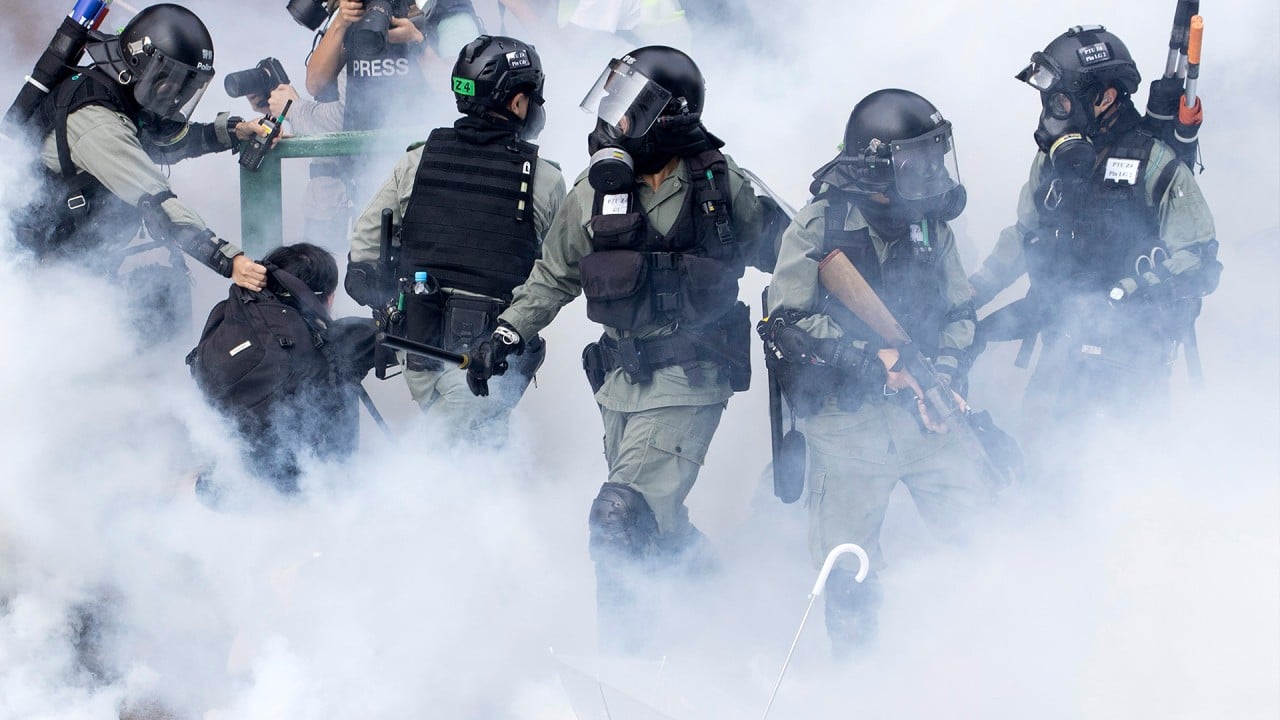
07:30
China’s Rebel City: The Hong Kong Protests
Lau Siu-kai, vice-president of the semi-official Chinese Association of Hong Kong and Macau Studies, said that instead of attributing any lack of progress on outstanding items to Lam’s abilities, the public should pay more attention to the limits on the administration’s political power by the opposition camp before the electoral system was revamped earlier this year.
He said he would not be surprised if Lam made a bid for re-election but conceded it would not be easy for any candidate to meet Beijing’s “new expectations”, as reflected by recent district visits conducted by senior officials of the central government’s liaison office to gain a first-hand understanding of local issues.
6 key takeaways from Hong Kong leader Carrie Lam’s policy address
While Lau declined to speculate on Lam’s chances of a second term, he did offer what he felt was a certainty: “The major development strategy raised by Lam is likely to be continued by whoever is elected. The long-existing problem of policy discontinuities will no longer be the norm.”
Professor Song Xiaozhuang, from Shenzhen University’s Centre for the Basic Laws of Hong Kong and Macau, said the biggest elephant in the room during Lam’s tenure was how she pushed for the extradition bill in 2019, which eventually sparked widespread protests across the city. While it needed to be done, Lam did it the wrong way, he said.
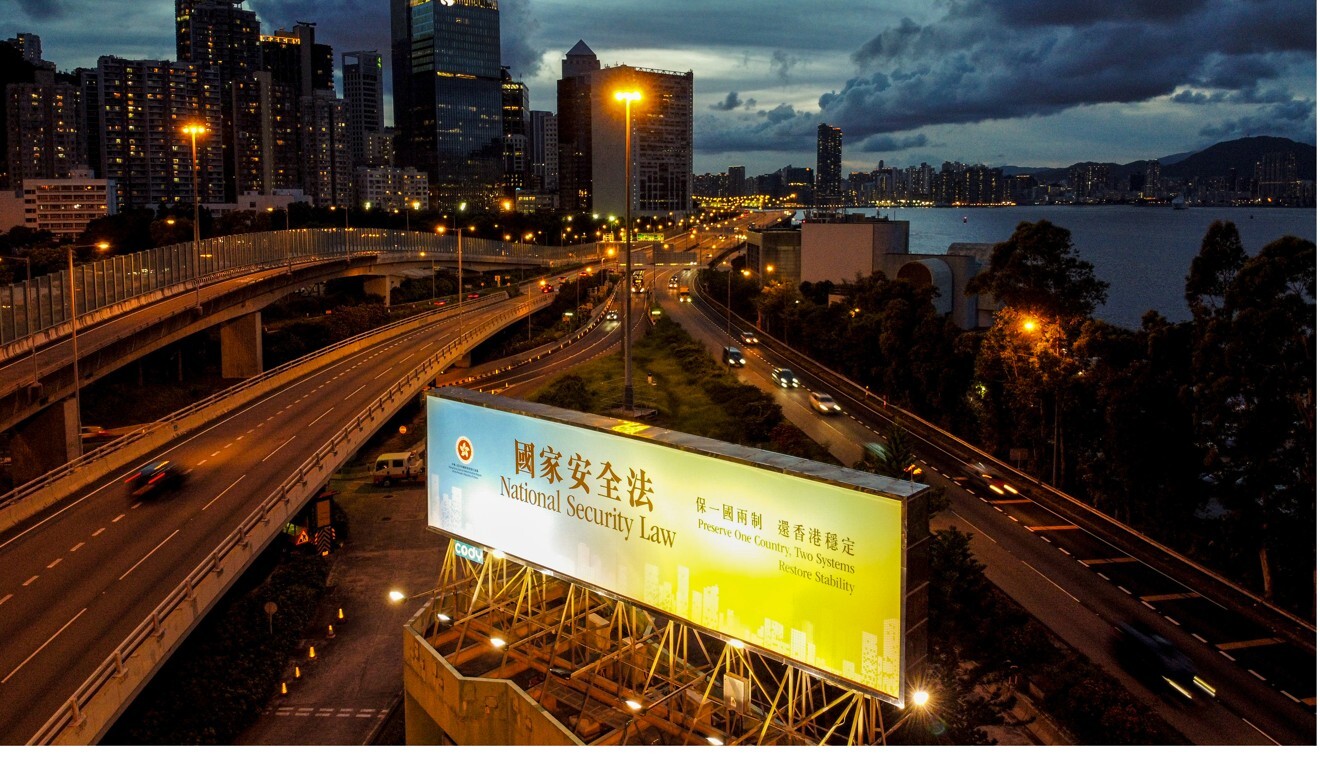
Steve Tsang, director of the SOAS China Institute at the University of London’s School of Oriental and African Studies, blamed Lam for the bill sparking the chain of events that brought on the protests and Beijing finally coming down hard on the city.
“The Hong Kong that was free, vibrant and dynamic, not only in economic matters but also in everyday life, where people spoke freely without fear, devoted themselves to protect rights and dignity of individuals and advocate democracy is gone. That’s the defining legacy of Lam’s term of office,” Tsang said. “No specific policy success can ‘balance’ this monumental failure.”
Song, however, credited Lam for helping to restore order. “At least when Beijing imposed the national security law in Hong Kong, she wanted it and she helped bring the city back to peace by pushing for the police and Department of Justice to work hard,” he said, adding that Lam also helped implement Beijing’s electoral changes earlier this year.
But HKBU’s Cabestan said instead of offering to reconcile, Lam’s government had not yielded in trying to win over the young. “She has behaved like a very authoritarian schoolmaster,” he said.


